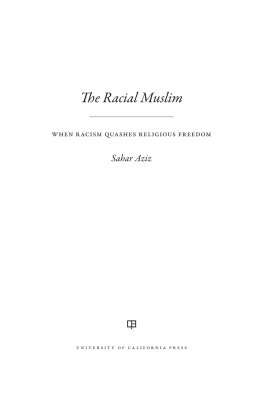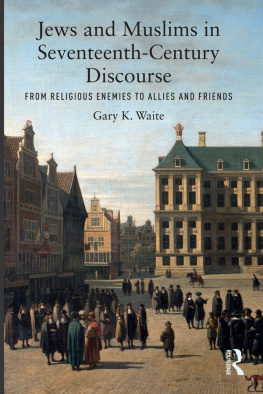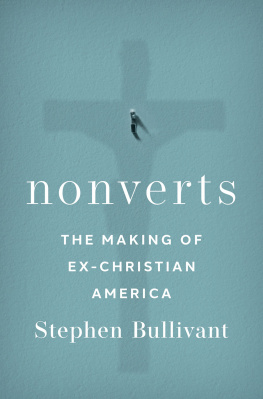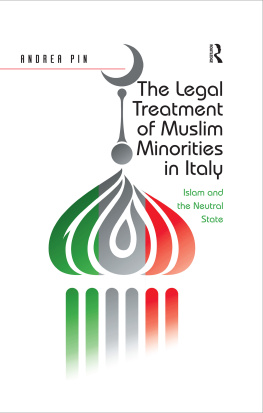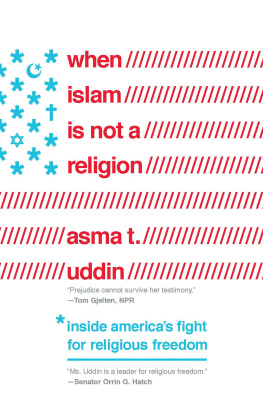ACKNOWLEDGMENTS
When I first began writing this book, a colleague advised me that it would write itself. Having created a detailed outline and argument, I thought it an odd statement at the time. Five years later, after thousands of hours of research, writing, and workshopping, I now appreciate the wisdom of these words. The book-writing process is truly an intellectual and personal journey that leads to a destination unpredictable at the start.
I would not have completed the journey without the love and support of my husband. There are too many times to count when he took on a disproportionate share of work in our busy household when I needed more time to write or was traveling to workshop drafts of the manuscript. He was my intellectual sounding board when I struggled with an idea or needed a reviewer of the multiple rounds of drafts. His love and support is a daily nourishment to my soul. I am also blessed to have in my three children vocal cheerleaders and loyal drill sergeants. They regularly asked me how many pages I had written and repeated the advice I gave them about staying focused and never giving up on ones dreams. During our daily walks to his elementary school, my youngest son would lay out my writing schedule for the day and remind me that he would check if I finished my work after he returned from school. My dearest Amira, Yusuf, and Sherif, you bring joy and meaning to my life every day. I hope our journey together taught you that with hard work and persistence you can accomplish your goals.
My parents lives and sacrifices for me and my siblings are the inspiration that gave me the stamina to complete this book project. Immigrating from Egypt with minimal material resources, their sheer willpower and devotion to their children carried us through many personal and financial challenges. Nothing was just handed to them, and everything they earned required double the work and double the credentials of their peers. My gratitude for the grit, love, pride, and work ethic they instilled in me cannot be overstated. Thank you, Fathi, for raising me to be a fighter, a critical thinker, and a strong female leader. Thank you, Sohair, for teaching me kindness, empathy, strength, and persistence. Heaven truly is at the feet of our mothers.
This books journey allowed me to cross paths with many brilliant academics who graciously offered their candid, critical, and insightful feedback on draft chapters. I was privileged to be invited to a writing retreat hosted by Kimberly Crenshaw where I presented the seeds of the book idea. The comments I received from Kimberly Crenshaw, Devon Carbado, Khaled Beydoun, Justin Hansford, Paul Butler, Priscilla Ocen, and Luke Harris were invaluable in the development of the books theoretical frame. I also greatly benefited from the critiques of early drafts by Amna Akbar, Shirin Sinnar, Ramzi Kassem, Maryam Jamshidi, and Daryl Li at a convening of critical national security scholars at CUNY Law School.
I am deeply indebted to Katherine Franke, whose intellectual boldness and passion are not only contagious, but set a high bar for us to strive to meet. She graciously welcomed me as a fellow at her Center for Gender and Sexuality Law at Columbia Law School, where I received valuable feedback on early drafts from Bernard Harcourt, Melissa Murray, Jamal Greene, Seyla Benhabib, Olatunde Johnson, Joseph Massad, and Kendall Thomas.
I am also thankful to Amaney Jamal for hosting a workshop at Princeton University comprised of esteemed academics who provided invaluable feedback. Professor Jamal embodies the kind and generous intellectual we should all strive to be. I am grateful to Deepa Kumar, Sylvia-Chan Malik, Arun Kundnani, Zain Abdullah, and Tanya Hernandez not only for their candid feedback and critiques at the workshop but also for their excellent scholarship that informs my work. The book also benefited from law faculty feedback on draft chapters at colloquia at Cornell University, Wake Forest University, St. Johns University, and Rutgers Law School. I could not have found better editors than Maura Roessner, Madison Wetzell, Francisco Reinking, and David Peattie, whose guidance, patience, and enthusiasm were instrumental in bringing the book to the world.
Rarely does one have the good fortune to find a mentor as supportive and generous as Gerald Torres. His keen intellect, wit, and trailblazing scholarship in critical race theory has inspired a generation of his former law students, including me. From the beginning of my entrance into legal academia, Professors Adrien Wing and Neal Gotanda have been stalwart supporters whose generous mentorship has been invaluable and for which I am deeply grateful. My work has benefited tremendously from the leadership and scholarship of a generation of women of color law professors including Angela Onwuachi-Willig, L. Song Richardson, Cheryl I. Harris, Deborah N. Archer, Danielle M. Conway, Adrienne Davis, Meera E. Deo, D. Wendy Greene, and Natsu Taylor Saito.
I am also fortunate to work at Rutgers Law School, where social justice is prioritized under the visionary leadership of Chancellor Nancy Cantor and where I have the privilege of working with brilliant scholars committed to social justice. At Rutgers I received critical feedback on earlier drafts from Elise Boddie, David Troutt, Jon Dubin, Twila Perry, Alexis Karteron, Norrinda Hayat, and Taja-Nia Henderson. Instrumental in each phase of the research process were the excellent librarians at Rutgers Law School including Caroline Young, Rebecca Kunkel, Jootaek Lee, Marjorie Crawford, and John Joergensen. A special thanks to my former Texas A&M and Rutgers law students who provided excellent research assistance: Pati Candelaria, Sabah Abbasi, Reem Moussa, Kyle Carney, Brian Bailey, Dina Mansour, Travis Gasper, and Joseph Carr.
Finally, I would be remiss not to admit that the vitriol of Islamophobes (whether in liberal or conservative circles) motivates me to fight hatred with knowledge, to counter ignorance with education, and show through my lifes work the strength and agency of Muslim and Arab women. My faith reminds me that when I see an evil, I must change it with my deeds, my words, and my heart. I pray the words in this book will inspire a generation of people, regardless of their faith, to speak out and resist anti-Muslim racism in their cities and countries. For it is when we stay silent and do nothing that oppression reigns.

